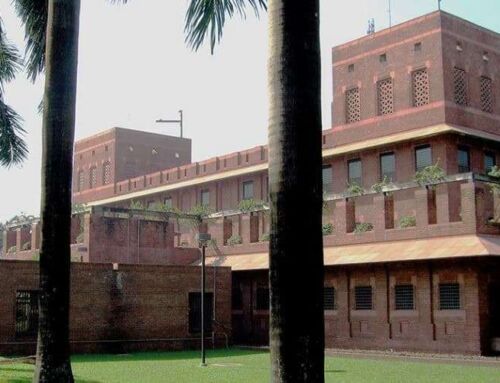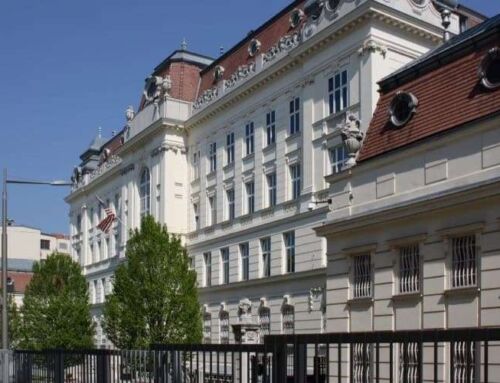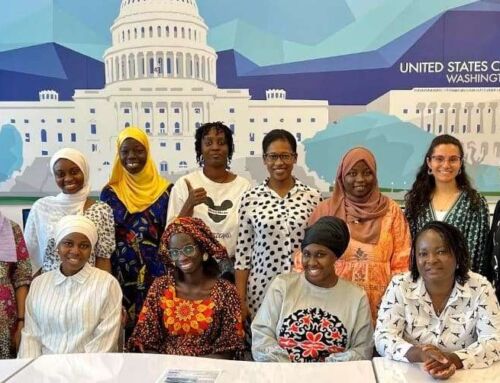Brady DeMeritt received two bachelor’s degrees in a double major from Pomona College – one in Linguistics and Cognitive Science and one in Computer Science. He completed the Foreign Affairs Information Technology Fellowship with the 2017 cohort and is now a Diplomatic Technology Officer (DTO).
Why did you decide to pursue the FAIT Fellowship program?
My original interest in the Department of State came from a study abroad program that I did when I was in high school. I went to South Korea and lived there for a year and studied language, but during that time I was exposed to the Department of State. I had the chance to meet with many of the different Foreign Service officers in Seoul and learned a lot more about the different programs and initiatives. During my sophomore year of college, I just happened to stumble across the application for FAIT Fellowship when I was working in my school’s career development office.
What advice do you have for students thinking about applying?
First and foremost, I’d say start early. The Washington Center reached out many times during the application and they were very helpful in answering any sorts of questions. In addition to that, the Department of State is fairly clear about the different traits that they’re looking for. I really tried to tailor [my application] to the Foreign Service Dimensions and related my experiences to demonstrate those traits. Also, I think that finding a good mentor — somebody to read over your application to give you an outside perspective — is super beneficial.
Where was your internship abroad and can you share your most memorable experience during that internship?
My summer internship abroad was in embassy Seoul in South Korea. The entire experience was really great – both personally and professionally. I really found a lot of mentorship and guidance through both the locally employed staff that worked in our offices and my bosses and the people I worked alongside. There were many large projects happening during that time. For several of these projects, , the people I worked with were really great in stepping back and pushing me to take on more. They really believed in my capabilities as a Fellow and what I could contribute. And although at the time certain things were a bit intimidating, I felt my confidence growing and I felt that I was able to contribute to the mission. On one specific project, a new person had transitioned to post and I actually instructed them on how to do certain tasks. So I really felt like I was contributing something and had developed a bit of an expertise in specific areas. It was a really good feeling and gave me a lot of confidence in my career.
Thinking of overall FAIT Fellowship program experience over the past 2 years, can you describe how the program has affected you either personally or professionally?
It’s really hard to imagine how my life would be now without the program. When I first applied I was just a sophomore in undergrad, and I was still very unsure about where I was going in life and what I was going to do. I was not even fully settled on what my major would be. The program has given me a lot of support both professionally and personally. I’ve developed a network and the people that I’ve met I hope will be lifelong contacts, friends and sources of guidance. The Fellowship has also given me a lot during my academics through continued contact with mentors and other people from the program. And, of course, the financial support that the program provided allowed me to focus more heavily on my studies. [This helped me] have that forward-thinking mindset and allowed me to really develop ideas of where I might want to go in the future.
Would you have any closing words of advice that you’d like to share with a student who is thinking about applying to the program?
It’s fairly generic, but it always holds true: Just ask a lot of questions. People aren’t going to expect you to know everything. The nature of the job means that there’s a lot of changing parts. You’re working in unfamiliar environments, you’re working with new people, and people move all the time in this sort of career and lifestyle. So really, just embrace that and accept when you don’t know things and ask questions. People oftentimes will give you the answers and through that you can start to develop a sense and confidence. There’s always going to be things that are changing and if you’re embracing that, and asking the questions, and you’re getting the answers, it’s going to put you a lot farther ahead during the application, but also later in your career.






